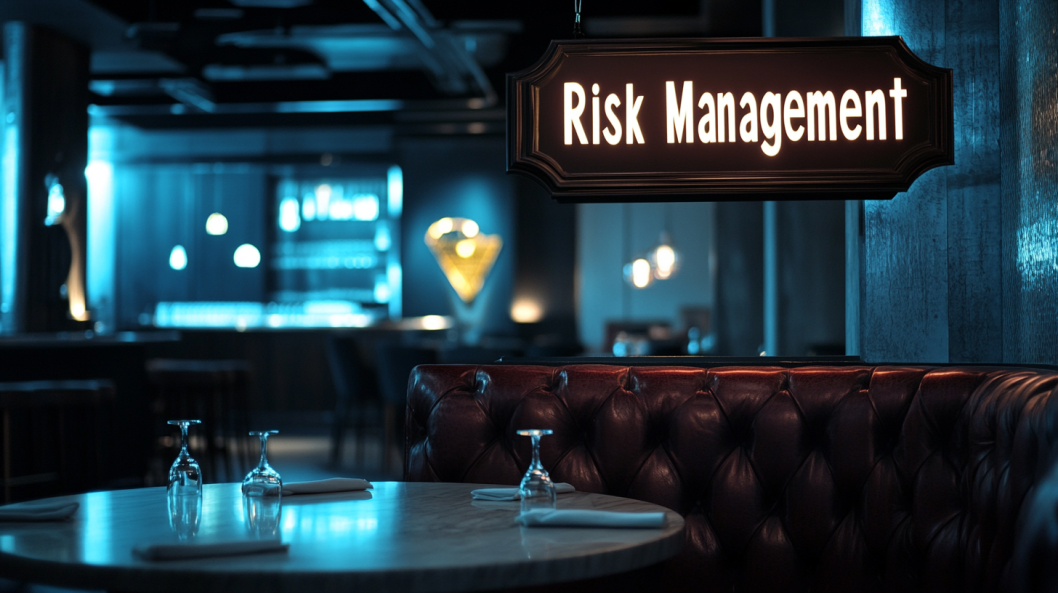Risk management is not merely a regulatory requirement but a fundamental component of successful business operations. The hospitality industry, with its diverse range of activities from hotels and restaurants to events and entertainment, faces unique challenges that necessitate a proactive approach to risk management.
I firmly believe that effective risk management is the bedrock of a thriving and resilient hospitality business. In an industry where customer expectations are high and operational challenges are frequent, neglecting risk management can lead to severe consequences, from financial losses to reputational damage. Strong leadership in health and safety ensures that robust risk management practices are in place, helping protect staff and guests and mitigating potential risks before they become significant issues. Prioritising health and safety management ensures compliance with regulations and enhances the overall stability and reputation of the business. This blog post outlines strategies and considerations for effectively managing risks within the UK hospitality sector.
Understanding Risk Profiles
Effective risk management begins with a comprehensive understanding of the specific risks associated with your hospitality business. These risks can be broadly categorised into operational, financial, reputational, and compliance risks. For instance, operational risks may include health and safety hazards, food hygiene issues, and equipment malfunctions. Financial risks could encompass cash flow problems and fluctuations in revenue. Reputational risks often involve customer dissatisfaction and negative reviews. In contrast, compliance risks relate to adherence to regulations such as the Health and Safety at Work Act 1974 and the Food Safety Act 1990.
Implementing Robust Health and Safety Procedures
Health and safety are paramount in the hospitality industry. Establishing and maintaining robust procedures to safeguard employees and guests is essential. This includes regular training for staff on health and safety protocols, such as safe food handling practices and emergency procedures. Regular risk assessments and maintaining up-to-date health and safety records are also crucial. Compliance with the latest health and safety regulations ensures legal adherence and enhances overall safety and well-being.
Developing a Comprehensive Crisis Management Plan
No business is immune to crises, and the hospitality sector is no exception. Developing a comprehensive crisis management plan is vital to mitigate the impact of unforeseen events, such as natural disasters, pandemics, or major operational disruptions. Your plan should include clear communication strategies, designated roles and responsibilities, and procedures for managing internal and external stakeholders. Regularly reviewing and practising your crisis management plan ensures your team is well-prepared to respond effectively to emergencies.
Implementing Financial Controls and Risk Mitigation Strategies
Financial stability is crucial for the sustainability of any hospitality business. Implementing robust financial controls helps minimise revenue loss, fraud, and financial mismanagement risks. Regular financial audits, accurate record-keeping, and prudent budgeting are essential to effective financial risk management. Additionally, considering insurance options tailored to the hospitality industry can protect against unforeseen financial losses.
Fostering a Culture of Risk Awareness
Creating a culture of risk awareness within your organisation is key to effective risk management. Encourage open communication about potential risks and foster a proactive approach to identifying and addressing issues before they escalate. Regular training sessions and risk management workshops can help instil a risk-aware mindset among employees, ensuring everyone is aligned with the business’s risk management objectives.
Staying Abreast of Regulatory Changes
The regulatory environment in the UK is continually evolving, and staying abreast of these changes is vital for maintaining compliance. Regularly review updates to relevant legislation and guidelines to ensure that your business practices remain in line with current requirements. Engaging with industry associations and seeking expert advice can provide valuable insights into emerging risks and regulatory changes.
From my expert point of view, effective risk management is a cornerstone of operational success in the competitive and ever-evolving UK hospitality sector. By understanding your risk profiles, implementing robust health and safety procedures, developing comprehensive crisis management plans, and fostering a culture of risk awareness, you can safeguard your business against potential threats. This proactive approach ensures compliance and safety and strengthens resilience, driving the long-term success of your hospitality business.





